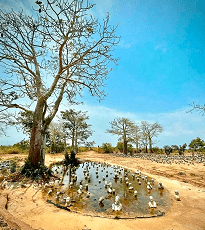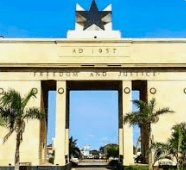South Africa’s embattled President Jacob Zuma has resigned from his office with immediate effect.
He made the announcement in a televised address to the nation on Wednesday evening.
Earlier, Mr Zuma’s governing ANC party told him to step down or face a vote of no confidence in parliament.
The 75-year-old has been under increasing pressure to give way to Deputy President Cyril Ramaphosa, the ANC’s new leader.
Mr Zuma, who has been in power since 2009, faces numerous allegations of corruption.
Earlier on Wednesday, police swooped on the Johannesburg home of the powerful and wealthy Gupta family with whom Mr Zuma has close ties.
What led up to Zuma’s resignation?
A meeting of the ANC’s National Executive Committee had announced its decision to recall Mr Zuma on Tuesday and gave him until the end of Wednesday to resign.
ANC chief whip Jackson Mthembu then announced a parliamentary motion of no-confidence for Thursday, with Mr Ramaphosa sworn in as president as soon as possible after that.
Mr Zuma’s resignation capped a day of fast-moving events.
It began with early morning police raids and arrests at the Johannesburg home of his close associates, the wealthy, Indian-born Gupta family.
The Guptas have been accused of using their close friendship with the president to wield enormous political influence. Both parties deny all allegations of wrongdoing.
Mr Zuma made no reference to the raid when he held a lengthy, unannounced, interview with national broadcaster SABC hours later.
But he said he had done nothing wrong and saw no reason to stand down.










